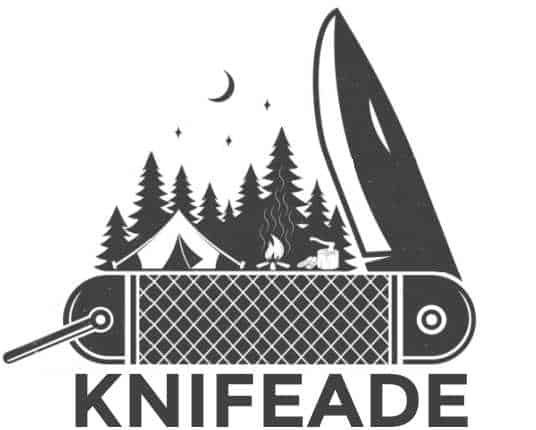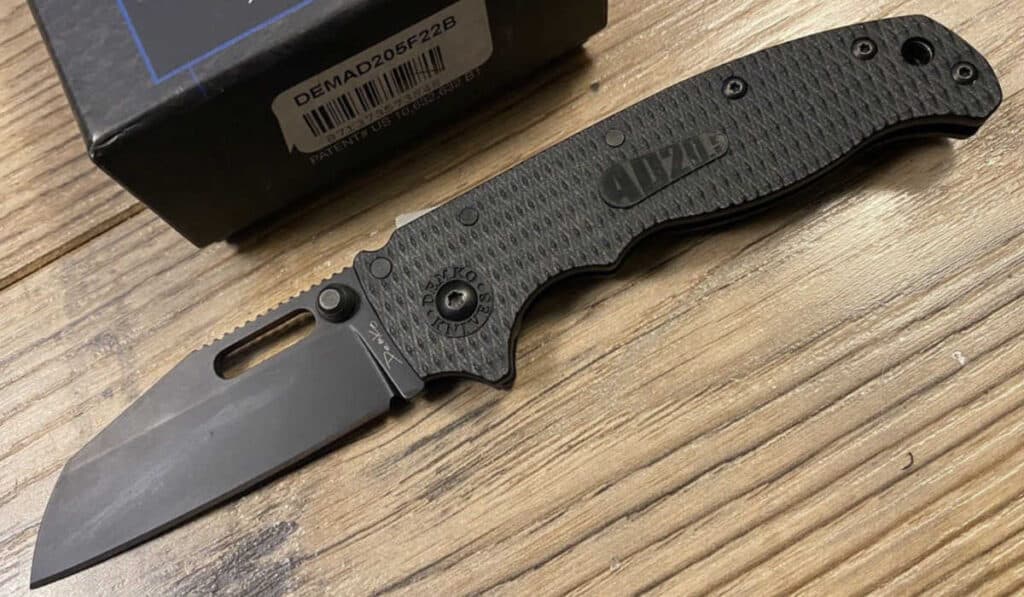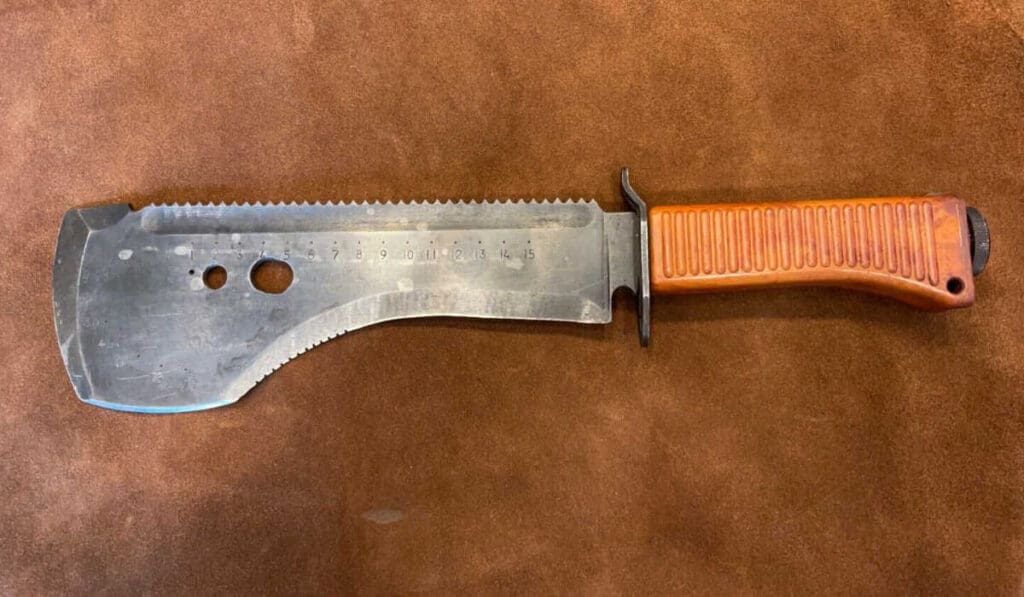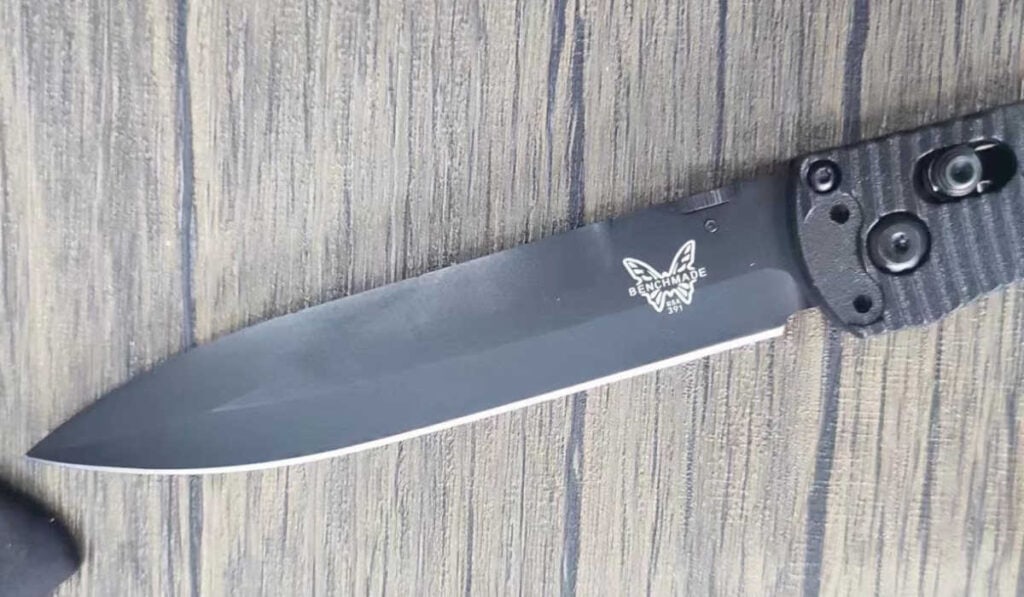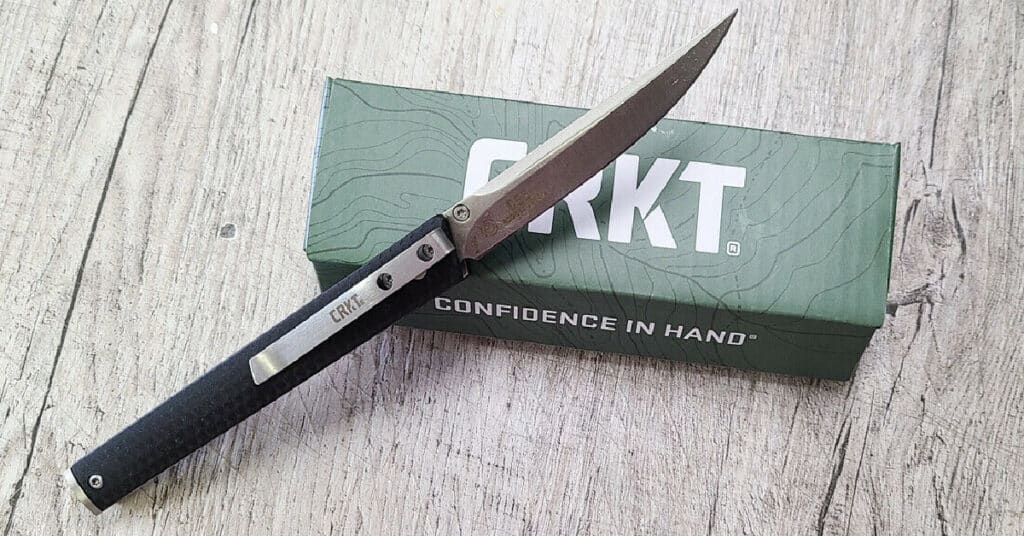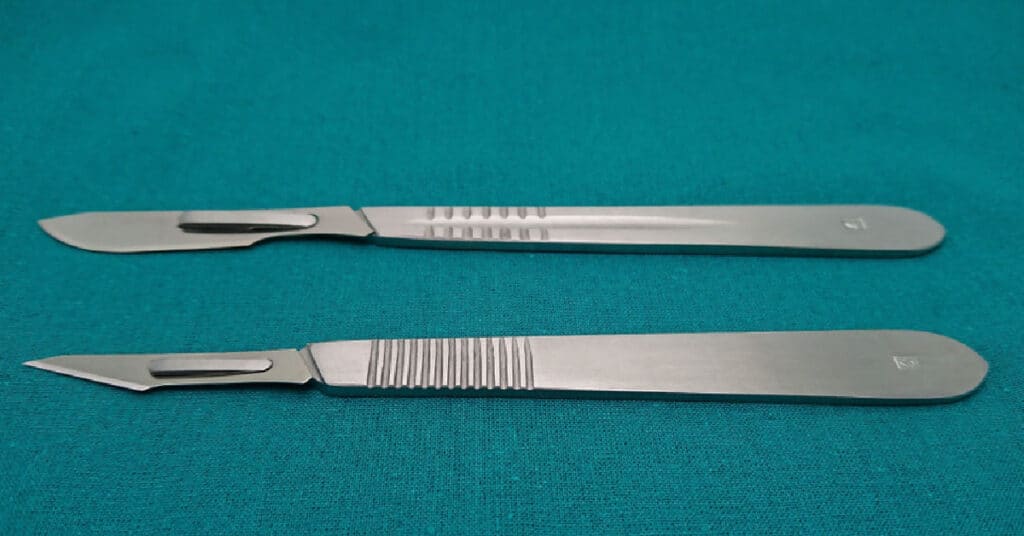Last updated on October 20th, 2023 at 06:29 pm
As an Amazon Associate I earn from qualifying purchases.
I’ll admit it, Colorado knife law is a complex and confusing topic (just like every other state I’ve written about).
However, it’s important to understand what types of knives are legal/prohibited and the restrictions for carrying them in public before purchasing or owning one.
Colorado has different regulations than other states when it comes to age limits on ownership as well as concealed carry laws for pocket knives – so don’t risk being fined by not knowing the details.
In this blog post we’ll explore Colorado knife law in depth; from understanding which kinds of blades are allowed to learning about exceptions that can be made if you break any rules. So buckle up, because here’s everything you need to know about Colorado knife law.
Our Top Rated “50-State-Legal” Knives
*These knives are listed based on their broad legality across states, but always consult your local laws before making a purchase.
Types of Knives Legal in Colorado
Folding Pocket Knives:
Folding pocket knives are the most common type of knife found in Colorado. These knives have a blade that folds into the handle and is held closed by a locking mechanism. They come in many shapes, sizes, and styles and can be used for everyday tasks such as cutting rope or opening packages.
Fixed Blade Knives:
Fixed-blade knives are also legal to own in Colorado. These types of knives have blades that do not fold into the handle but instead remain fixed in place when opened. They tend to be larger than folding pocket knives and often feature a guard at the base of the blade to protect your fingers from slipping onto it while using it. Fixed-blade knives are typically used for more heavy-duty tasks such as skinning game or chopping wood.
Automatic Knives (Switchblades) & Gravity Knives
Automatic knives, commonly referred to as switchblades, and gravity knives are legal to own and carry in Colorado following a legislative revision in 2017, except in certain cities like Denver.
Dirks, Daggers, & Stilletos
Dirks, daggers, and stilettos are legal to own and carry in Colorado, as long as they adhere to the length restrictions set forth by state and local laws.
Colorado Knife Length Laws
While there are no statewide blade length restrictions, carrying a concealed knife with a blade longer than 3.5 inches is prohibited unless it’s a hunting or fishing knife. In Denver, carrying a blade longer than 3.5 inches is prohibited.
Concealed Carry Laws for Knives in Colorado
Concealed carry is defined as carrying a weapon that is not visible to the public, including knives with blades of any length. Folding pocket knives may be legally carried concealed if the blade is 3.5 inches or shorter, or if they are hunting or fishing knives.
Open Carry Laws for Knives in Colorado
Open carry of knives is legal in the state of Colorado, meaning that a person can visibly and openly display their knife on their body or clothing without it being concealed from view.
Age Restrictions for Knife Ownership and Carrying in Colorado
The minimum age to own or possess a knife in Colorado is 18 years old. Anyone under the age of 18 cannot legally purchase, carry, or use any type of pocketknife without parental permission. For concealed carry of knives in Colorado, the standard age is also 18, contrary to the original mention of 21 years old.
Penalties for Violating Knife Laws in Colorado
Violating Colorado knife laws can lead to misdemeanor or felony charges depending on the offense. For instance, carrying a concealed knife with a blade exceeding 3.5 inches, or carrying a knife on school property can lead to serious legal consequences including fines and imprisonment.
Exceptions to the Rules Regarding Knife-Carrying and Ownership in Colorado
Certain exceptions apply for members of the military, law enforcement officers, and individuals with a reasonable belief of danger requiring a knife for self-defense2.
Given the complexity and ever-evolving nature of Colorado knife laws, always consult with a legal professional or check the most recent state and local laws to make sure you’re up-to-date.
FAQs in Relation to Colorado Knife Law
Are butterfly knives illegal in Colorado?
Butterfly knives are not specifically addressed in the state of Colorado’s knife laws, therefore, they are not considered illegal. However, local laws and regulations can vary.
Are switchblades legal in Colorado?
Switchblades, also known as automatic knives, are legal in Colorado. A legislative revision in 2017 lifted the ban on these knives. However, individual city or county laws might still place restrictions on them.
Are OTF knives legal in Colorado?
OTF (Out the Front) knives, a type of switchblade or automatic knife, are legal in Colorado. They were included in the 2017 legislative revision that removed the prohibition on automatic knives.
Are automatic knives legal in Colorado?
Automatic knives are legal in Colorado. They were legalized in a legislative revision in 2017. As always, check local city and county laws for any additional restrictions.
Are gravity knives legal in Colorado?
Gravity knives are legal to own and carry in Colorado. They were included in the 2017 legislation that legalized automatic knives. It’s important to remember that local ordinances may still prohibit them, so always check with local laws.
How old do you have to be to buy a knife in Colorado?
In Colorado, you must be at least 18 years old to buy a knife. Anyone under the age of 18 cannot legally purchase, carry, or use any type of knife without parental permission. For concealed carry of knives, you must be at least 21 years old.
Can felons carry knives in Colorado?
Felons in Colorado face certain restrictions on carrying weapons, and these restrictions can potentially apply to knives. It depends on the type and length of the knife, among other factors. Given the potential legal ramifications, felons should consult with a legal professional before carrying any type of weapon, including knives.
Colorado State Knife Law References
Where Colorado’s Knife Laws Can Be Found:
- Colorado Title 18. Criminal Code Section 18-12-101: This section provides the legal definitions and prohibitions regarding knives in Colorado.
- Colorado Revised Statutes Section 18-12-101 (2020): This section defines a “knife” and outlines the restrictions regarding blade length and types of knives.
Significant Court Cases:
| Case Title | Summary |
|---|---|
| People v. Pickett, 571 P.2d 1078 (1977) | Determined the length of a blade as the distance from the tip to the point where it meets the handle. |
| A.P.E., a Juvenile v. The PEOPLE of the State of Colorado, 20 P.3d 1179 (Colorado Supreme Court 2001) | The Colorado Supreme Court interpreted the unlawful carrying statute, stating carrying a knife with a blade less than 3½” in length requires proof of intent to use it as a weapon for a conviction. |
Timeline of Major Changes in Colorado’s Knife Law History:
- 2017: The possession of gravity knives and switchblade knives was legalized by removing them from the definition of ‘illegal weapon’ during the 2017 Regular Session of the Colorado General Assembly.
- 2017: In August, a new law came into effect that removed switchblades from the category of illegal weapons statewide, although certain cities like Denver and Boulder maintained local prohibitions.
- 2017: Colorado SB17-008 was passed, repealing the prohibition of automatic and gravity knives within the state, garnering overwhelming support from the House and Senate before being sent to the Governor for approval.
These resources provide a comprehensive overview of the knife laws, significant court rulings, and historical changes in Colorado’s knife laws.
Conclusion
In conclusion, it is important to understand the laws surrounding knives in Colorado before carrying or owning one. There are certain types of knives that are legal and others that are prohibited, as well as restrictions on concealed carry and open carry for those who wish to own a knife.
Additionally, there are age restrictions in place regarding the ownership and carrying of knives, with penalties for violating these laws. However, there may be exceptions depending on the situation so it’s best to research further if you have any questions about Colorado knife law.
Do Sheepsfoot Blades Have A Purpose? (Cuz They’re Ugly…)
Spetsnaz Machetes – Blades Of The Russian Special Forces
What Is The Actual Purpose Of A Spear Point Knife Blade?
CRKT CEO Review – Coolest, Most Worthless Knife Ever?
How Sharp Is A Scalpel? (Is It Sharper Than A Razor?)
Can You Shave With A Knife? (Yes, Here’s How)
As an Amazon Associate I earn from qualifying purchases.
